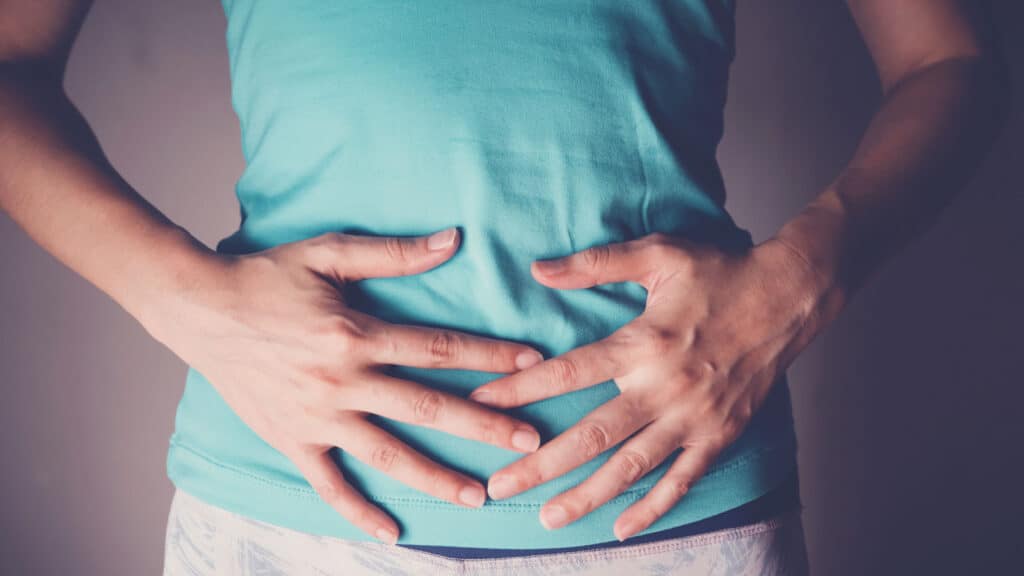Why You’re Always Bloated—And What You Can Do About It (According to GI Experts)
It’s that uncomfortable fullness. Your jeans don’t fit right, your stomach feels like it’s hosting a beach ball, and no matter how much water you drink, the bloat lingers. If you’re wondering why you’re constantly bloated—even when you haven’t overeaten—you’re definitely not alone.
In fact, up to 30% of people experience bloating on a regular basis, and it’s one of the most common digestive complaints seen by doctors. But bloating isn’t always about what you ate—it can be about how you eat, when you eat, and what else your body is dealing with behind the scenes.
Here’s what leading gastronintestinal (GI) experts say could be behind your bloating—and what to do about it.
1. You’re Swallowing Too Much Air

Believe it or not, some bloating starts with your mouth. When you chew gum, talk while eating, drink through a straw, or even sip fizzy drinks, you’re likely swallowing excess air. This air can get trapped in your digestive system, causing that puffed-up feeling. According to Johns Hopkins Medicine, reducing carbonated drinks and eating more slowly can help reduce this kind of bloating.
2. You’re Eating Too Fast

In our fast-paced lives, wolfing down a sandwich between meetings might feel normal—but your gut doesn’t love it. Eating too quickly can prevent your stomach from properly signaling fullness and lead to increased air intake. Cleveland Clinic recommends slowing down, chewing thoroughly, and giving your body time to digest to prevent unnecessary bloating.
3. You’re Constipated

If things aren’t, ahem, moving regularly, bloating is a likely consequence. When stool sits in your colon too long, it can ferment and cause gas buildup. The Mayo Clinic notes that common causes include low fiber intake, dehydration, and lack of exercise. Getting more movement, fiber, and water into your day can help get things going and ease that bloat.
4. You’re Eating Foods That Trigger Gas

Some healthy foods—like beans, onions, broccoli, and apples—contain fermentable carbohydrates known as FODMAPs. These can cause major bloating in some people, especially those with IBS. A low FODMAP diet, developed by researchers at Monash University, has been shown to significantly reduce bloating and other symptoms in people with sensitive guts. (Note: this isn’t a diet to try without guidance—many healthy foods are temporarily restricted.)
5. You’re Reacting to Sugar Alcohols

Many “sugar-free” or “keto-friendly” products contain sugar alcohols like sorbitol or xylitol. While they’re low in calories, they’re also tough for the body to digest. The result? Gas, bloating, and sometimes diarrhea. Harvard Healthrecommends limiting intake if you’re prone to digestive issues.
6. Your Gut Bacteria Are Off Balance

Your digestive tract is home to trillions of bacteria—some helpful, some not so much. When that balance is disrupted, gas production and bloating can skyrocket. The American Gastroenterological Association notes that certain probiotics may help, depending on your symptoms. However, it’s not one-size-fits-all—working with a GI dietitian or doctor is key if you suspect your microbiome is out of whack.
7. You Might Have Small Intestinal Bacterial Overgrowth (SIBO)

SIBO occurs when bacteria that are normally found in the large intestine migrate to the small intestine, where they don’t belong. The result? Severe bloating, especially within an hour or two of eating, along with gas, fatigue, and possibly diarrhea. Cedars-Sinai is a leader in SIBO research and notes that a breath test can help diagnose the condition, which is treatable with antibiotics or herbal protocols.
8. You Have an Undiagnosed Food Intolerance

Lactose (in dairy), fructose (in fruit and sweeteners), and gluten (in wheat) are some of the most common triggers for bloating related to food intolerance. The National Institutes of Health explains that even small amounts of these compounds can trigger bloating, gas, and cramping in sensitive individuals. An elimination diet or medical testing can help identify your personal triggers.
9. You’re Stressed Out

Your brain and gut are deeply connected. When your stress levels rise, your digestion slows down, gas production increases, and bloating often follows. Harvard Medical School explains how the gut-brain axis can affect everything from appetite to bloating. Mindfulness, walking, and even deep breathing can help soothe your nervous system—and your stomach.
10. Your Hormones Are Fluctuating

Many women notice bloating around their menstrual cycle. That’s because rising progesterone can cause water retention and slower digestion. FODMAP Everyday says this is totally normal, but you can reduce the effect by limiting salt, staying hydrated, and keeping caffeine and alcohol in check during your luteal phase.
When to See a Doctor

Occasional bloating is normal, but if it’s frequent, painful, or interfering with your quality of life, don’t brush it off. Persistent bloating can sometimes point to more serious conditions like celiac disease, ovarian cancer, or inflammatory bowel disease (IBD). If you’re unsure, start with your primary care doctor or a gastroenterologist.
How to De-Bloat—Starting Today

Here are a few simple things that can help right away:
- Eat more slowly and chew thoroughly
- Avoid fizzy drinks and limit sugar alcohols
- Go for a walk after meals to aid digestion
- Try peppermint tea, which can help relax GI muscles
- Keep a food and symptom diary to track triggers
- Don’t self-diagnose—see a professional before starting elimination diets or supplements
Final Thought

Bloating may be common, but it’s not something you have to just live with. Whether it’s your diet, stress levels, hormones, or gut bacteria, your body is trying to tell you something. Learning to decode the message—and making a few thoughtful changes—can go a long way toward making you feel lighter, more comfortable, and more in control of your health.
Are You Sabotaging Your Gut Health? 8 Things to Stop Doing Now

READ: Are You Sabotaging Your Gut Health? 8 Things to Stop Doing Now







